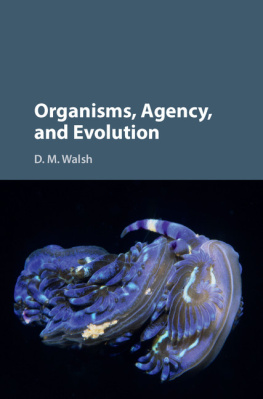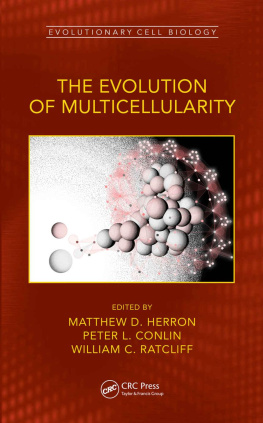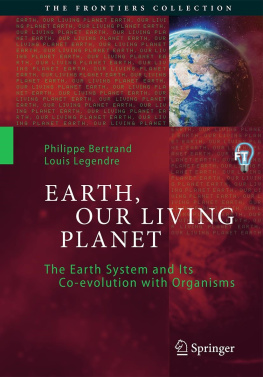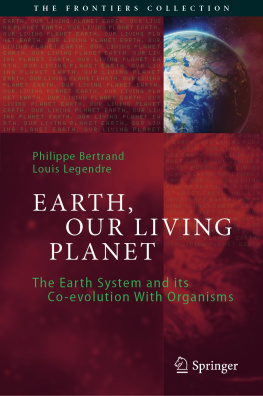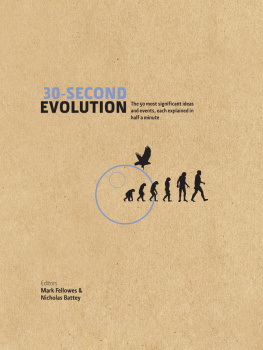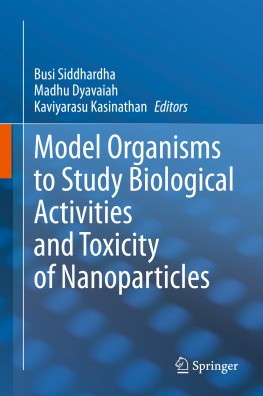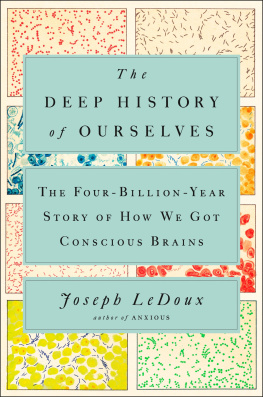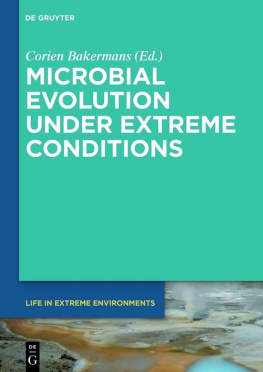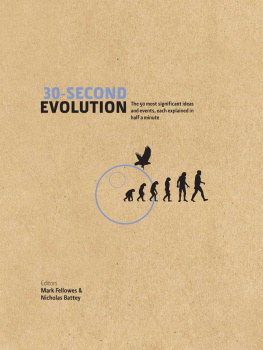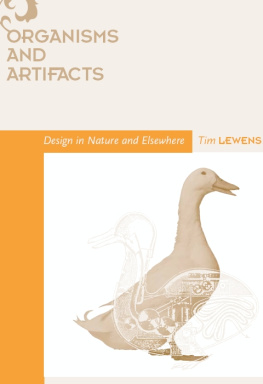D. M. Walsh - Organisms, Agency, and Evolution
Here you can read online D. M. Walsh - Organisms, Agency, and Evolution full text of the book (entire story) in english for free. Download pdf and epub, get meaning, cover and reviews about this ebook. year: 2015, publisher: Cambridge University Press, genre: Romance novel. Description of the work, (preface) as well as reviews are available. Best literature library LitArk.com created for fans of good reading and offers a wide selection of genres:
Romance novel
Science fiction
Adventure
Detective
Science
History
Home and family
Prose
Art
Politics
Computer
Non-fiction
Religion
Business
Children
Humor
Choose a favorite category and find really read worthwhile books. Enjoy immersion in the world of imagination, feel the emotions of the characters or learn something new for yourself, make an fascinating discovery.
- Book:Organisms, Agency, and Evolution
- Author:
- Publisher:Cambridge University Press
- Genre:
- Year:2015
- Rating:5 / 5
- Favourites:Add to favourites
- Your mark:
- 100
- 1
- 2
- 3
- 4
- 5
Organisms, Agency, and Evolution: summary, description and annotation
We offer to read an annotation, description, summary or preface (depends on what the author of the book "Organisms, Agency, and Evolution" wrote himself). If you haven't found the necessary information about the book — write in the comments, we will try to find it.
Organisms, Agency, and Evolution — read online for free the complete book (whole text) full work
Below is the text of the book, divided by pages. System saving the place of the last page read, allows you to conveniently read the book "Organisms, Agency, and Evolution" online for free, without having to search again every time where you left off. Put a bookmark, and you can go to the page where you finished reading at any time.
Font size:
Interval:
Bookmark:

Organisms, Agency, and Evolution
The central insight of Darwins Origin of Species is that evolution is an ecological phenomenon, arising from the activities of organisms in the struggle for life. By contrast, the Modern Synthesis theory of evolution, that rose to prominence in the twentieth century, presents evolution as a fundamentally molecular phenomenon, occurring in populations of suborganismal entities genes. After nearly a century of success, the Modern Synthesis theory is now being challenged by empirical advances in the study of organismal development and inheritance. In this important study, D.M. Walsh shows that the principal defect of the Modern Synthesis resides in its rejection of Darwins organismal perspective, and argues for situated Darwinism: an alternative, organism-centred conception of evolution that prioritises organisms as adaptive agents. His book will be of interest to scholars and advanced students of evolutionary biology and the philosophy of biology.
D.M. Walsh is Professor in the Department of Philosophy, the Institute for the History and Philosophy of Science and Technology, and the Department of Ecology and Evolutionary Biology at the University of Toronto. He is the editor of Naturalism, Evolution and Mind (Cambridge, 2001) and the coeditor of Evolutionary Biology: Conceptual, Ethical and Religious Issues (with R. Paul Thompson, Cambridge, 2014).
Organisms, Agency, and Evolution
D.M. Walsh
University of Toronto


University Printing House, Cambridge CB2 8BS, United Kingdom
Cambridge University Press is part of the University of Cambridge.
It furthers the Universitys mission by disseminating knowledge in the pursuit of education, learning and research at the highest international levels of excellence.
www.cambridge.org
Information on this title: www.cambridge.org/9781107122109
D. M. Walsh 2015
This publication is in copyright. Subject to statutory exception and to the provisions of relevant collective licensing agreements, no reproduction of any part may take place without the written permission of Cambridge University Press.
First published 2015
A catalogue record for this publication is available from the British Library
ISBN 978-1-107-12210-9 Hardback
Cambridge University Press has no responsibility for the persistence or accuracy of URLs for external or third-party internet websites referred to in this publication, and does not guarantee that any content on such websites is, or will remain, accurate or appropriate.
For Margaret OMalley
When I took my first ethology course, I was instructed to make an ethogram. An ethogram is a catalogue of the movements, postures and sounds of a target organism whose behaviour one wishes to study. The objective of the ethogram is to free the observation of behaviour from any taint of purpose or intention. We were to identify behaviours with manifestations, rather than motives. I was told that my Columbian Ground Squirrels ( Spermophilus columbianus ) were standing on their hind legs at full height, rather than surveying the scene for predators. They were emitting a high-pitched bark, rather than alerting their fellow colony members to imminent dangers. As a biddable undergraduate, I dutifully went along with this, even though I could see that my squirrels were looking for something, and warning each other. My brush with ethology taught me three things. The first is that midnight black is the best hair-dye tint for painting patterns on ground squirrels. The other two are less practical. They are that organisms are fundamentally purposive entities, and that biologists have an animadversion to purpose. These perplex me: why should the phenomenon that demarcates the domain of biology be off-limits to biology?
This is more than just an idiosyncratic bemusement on my part. It is a leitmotif that runs through the entire history of biology. Since its inception, biology seems to have been torn by the evidently incompatible demands of treating organisms as natural entities, like everything else, and as singularly peculiar (naturally purposive) things, unlike anything else. One of the common strategies has been to attempt to minimise the distinctiveness of organisms, to show that the problematic nature of organisms is incidental to a comprehensive understanding of understanding of biology, and that the principles by which we account for nonliving phenomena are wholly adequate to the explanation of living phenomena. This is a bold move, and it is fair to say that it has paid dividends.
Nowhere is it pursued more vigorously, or more successfully, than in the theory of evolution that descended from Darwins and grew to prominence throughout the twentieth century. The Modern Synthesis theory of evolution is elegant and powerful. Inspired by the molecular revolution in biology, the Modern Synthesis circumvents the organism issue by making genes the canonical unit of biological organisation. Modern Synthesis evolution is a fundamentally molecular phenomenon. It is the process in which a giant molecule, DNA, is replicated, and transmitted from one generation to the next, whereupon it builds entities (vehicles or interactors) that help to spread further replicates.
No one can gainsay the advances in our understanding of biology ushered in by the Modern Synthesis. It is now coming up for a century of unparalleled success. But we are beginning to see intimations that, perhaps, this disorganicised evolutionary thinking may be running up against its limitations. These deficiencies, by my reckoning, occur at just the places where our understanding of evolution could be enhanced by paying attention to the contribution of organisms as organisms.
Whether or not the Modern Synthesis is reaching the end of its useful life, there is ample justification for exploring an alternative. It lies in the fact that Modern Synthesis thinking misrepresents the metaphysics of evolution. Evolution, properly construed, is not so much a molecular phenomenon as an ecological one. It arises out of what organisms do in the pursuit of their ways of life. That, I take it, is the lesson of cardinal importance to be drawn from Darwins Origin of Species . But it is precisely this perspective that has been obscured by the marginalisation of organisms that has taken hold under the Modern Synthesis. I think it is a salutary exercise to contemplate what we might have missed by leaving organisms out of our understanding of evolution. That is the objective of this book.
The book comprises three main parts. explores the consequences of the discovery and intensive concentration on genes that has inspired the growth of twentieth-century biology (and continues to do so). The gene has encouraged what I call the fractionation of evolution. Thanks to gene centrism we can think of the component processes of evolution inheritance, development, adaptive change and the origin of novelties as discrete and autonomous. Together, they comprise evolution. They are united by the fact that the gene is the canonical unit in the explanation of each process.
Fractionation, I think, is the linchpin of Modern Synthesis, gene-centred thinking. It is what undergirds the Modern Synthesis approach to evolution that I call Replicator Biology. If fractionation is right, I reckon, so is Replicator Biology. Fractionation amounts to the great empirical wager of the Modern Synthesis. While fractionation is not usually the explicit target of those who wish to challenge the Modern Synthesis, it is the implications of fractionation that have been most vigorously opposed in recent evolutionary biology and its philosophy.
Font size:
Interval:
Bookmark:
Similar books «Organisms, Agency, and Evolution»
Look at similar books to Organisms, Agency, and Evolution. We have selected literature similar in name and meaning in the hope of providing readers with more options to find new, interesting, not yet read works.
Discussion, reviews of the book Organisms, Agency, and Evolution and just readers' own opinions. Leave your comments, write what you think about the work, its meaning or the main characters. Specify what exactly you liked and what you didn't like, and why you think so.

